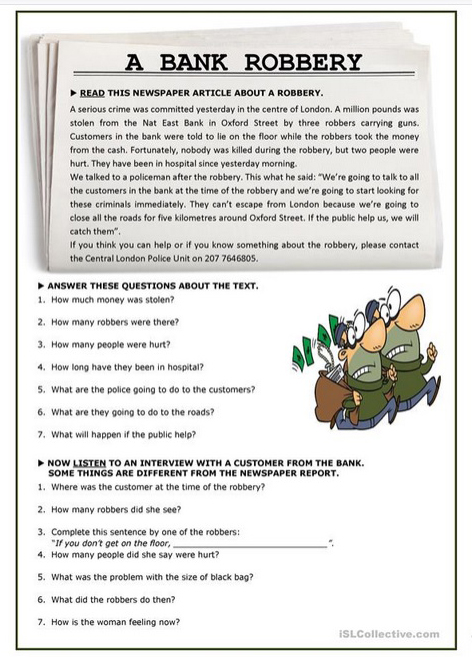What’s ESP? ESP stands for English for Specific Purposes and it’s a subset of ESL (English as a Second Language). It is directed to people aiming to study or perfect their vocabulary and skills specific to a type of employment, or business sector. Here are some examples: Technical English, Scientific English, English for the medical professionals, English for tourism and hospitality, English for diplomacy, Legal English, etc. Here is a list of useful ESP resources I have compiled:
1: Technical English
This site has clearly labelled worksheets that are easy to print. It has a great variety of levels as well as types of activities: ESL Printables
2: Academic English
This page offers clear advice and step-by-step instructions on how to structure your class on Academic English. They also provide numerous worksheets ready for you to download. Some of their resources include email writing, how to write your university application, how to write your biography and presentation skills: TEFLtastic
3: English for Hotels and Tourism
The page speaks for itself. The units are clearly indicated, there are lists of vocabulary, and activities to practise it: English4Hotels. And this is a book available for download on the same topic English for Tourism
4: Legal English
This ESP resource includes vocabulary, especially on crime and punishment, and lots of activities to practise such vocabulary in context. TEFLtastic- Law and also iSLCOLLECTIVE
5: Medical English
Reading, vocabulary, as well as listening activities right here medicalEnglish
6: English for Diplomacy
This ESP resource has writing exercises for tone, tact, and diplomacy: linguahouse and this site has a number of exercises: Breaking News English.com
7: Email English
There are lots of online resources to share with your students while teaching online. Here are some of the best: Email English Worksheets and here, if you don’t mind creating an account: iSLCOLLECTIVE
8: Business English
Business English skills can involve answering the phone, videoconferencing with your clients, negotiation, how to interview online, coaching, vendor vocabulary, making suggestions, etc. Here is a great source of online materials: businessenglishpod.com
9: Academic English
This is indispensable information and practice for any student whose first language is not English, yet would like to study in an English speaking university. It covers writing styles, structuring an essay, referencing, academic vocabulary, all here: Academic English UK
10: English and Science
I’d call this, “How to teach English with Science.” Here are some great examples of practical scientific concepts while using English. The page includes lesson plans, worksheets and videos: British Council
Please, let us know of other great resources you may be using in your lessons so we can add them to the above list.


